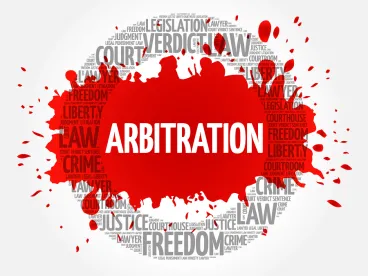Vacating a $10 million arbitration award resulting from a “collective action” arbitration, the U.S. Court of Appeals for the Seventh Circuit ruled that whether class or collective arbitration is authorized by an arbitration agreement is a threshold question for the district court, not an arbitrator. Herrington v. Waterstone Mortgage Corp., No. 17-3609 (7th Cir. Oct. 22, 2018).
The Seventh Circuit’s decision is in line with every other federal court of appeals to have addressed the issue, including the Fourth, Sixth, Eighth, Ninth, and Eleventh Circuits.
Background
The plaintiff, Pamela Herrington, brought class and collective action claims against her former employer for alleged violations of the Fair Labor Standards Act. The plaintiff had signed an agreement to arbitrate employment disputes with a waiver clause that appeared to prohibit class or collective claims. The agreement stated that the “arbitration may not be joined with or join or include any claims by any person not party to this Agreement.”
The district court ruled that the agreement was enforceable, but concluded that the class action waiver was invalid based on then-applicable Seventh Circuit case law. The district court sent the case to arbitration, with instructions to allow the plaintiff to join other employees to her case, either through joinder of other individual cases or through collective or class action procedures.
Despite the waiver, the arbitrator determined that collective action arbitration was available under the parties’ agreement. The arbitrator awarded Herrington and 174 opt-in plaintiffs more than $10 million in damages. The employer appealed the district court’s order compelling arbitration.
Threshold Question
The Seventh Circuit vacated the award and remanded the case.
The Court held that, under the U.S. Supreme Court’s Epic Systems Corp. v. Lewis, 138 S. Ct. 1612 (2018), the district court erred in concluding the waiver was unlawful. The Seventh Circuit went on to say that “the lawfulness of the waiver is the easy part of this appeal. The hard part is a question that Epic Systems does not address: what happens next?”
The Seventh Circuit then held that “the availability of class or collective arbitration is a threshold question of arbitrability” that must be decided by the district court. The Court explained that the question of whether class or collective arbitration is authorized by an arbitration agreement is a “gateway matter,” similar to questions of whether the parties have a valid arbitration agreement at all and whether a dispute is covered by their agreement. See Oxford Health Plans LLC v. Sutter, 569 U.S. 564, 569 n.2 (2013); John Wiley & Sons, Inc. v. Livingston, 376 U.S. 543, 557 (1964).
Underlying the Court’s decision is the premise that permitting class or collective actions fundamentally changes arbitration. The Court stressed that the Supreme Court has “repeatedly emphasized that the structural features of class arbitration make it a ‘fundamental’ change from the norm of bilateral arbitration.”
Accordingly, the Seventh Circuit vacated the district court’s order, remanded the case to the district court, and ordered it to conduct the threshold inquiry regarding class or collective arbitrability. If the district court determines the parties’ agreement allows class or collective arbitration, it may once again enforce the arbitration award. If, however, the district court determines the agreement requires single-plaintiff arbitration, it should vacate the award and send the matter to the arbitrator for a new proceeding, the Court directed.
***
Employers should review their arbitration agreements to ensure their intentions with respect to the availability of class or collective arbitration are as clear as possible.





 />i
/>i

